The legacy of President Hassan Rouhani
The United States of America has resorted to what amounts economic and medical terrorism since 2018 when it unilaterally withdrew from the Iran Nuclear Deal. As part of the “maximum pressure campaign” against Iran, even food and essential medicine has been included in the new restrictions.
President Hassan Rouhani, with less than a year left of his second term in office; holds firmly to the view that the blame for Iran’s flailing economy can be ascribed to the “sweeping” US sanction.
With all the sanctions and so little time till 2021 what avenues are open to Iran and how can it overcome the tremendous hurdles it is faced with?
Is the economic downturn Iran is going through just a result of the sanctions or mismanagement?
I believe that the main problem is lack of competent management because nothing serious has been done in economic terms.
We had no planning for conditions of sanctions, the present circumstances where the US has quit the JCPOA. The weakness of our economy is that we have made temporary decisions instead of planning for a long-term perspective. Therefore I attribute the current economic problems to the administration’s lack of planning and I think sanctions come next by far.
H. Mostakhdemin Hosseini, Frmr Deputy Minister of Economic Affairs
Economic plans and implementations of past seven years
The current system has inherent weaknesses evident in the fact that, despite a huge budget, there has been no improvement in national production or employment, not to mention our economic culture.
We mean the most important problems of Iran’s economy are [not] external ones but internal ones. We may say that the internal obstacles against Iran’s economy are 4 times stronger than external problems.
Iran economic standing
The current economic climate in Iran is most unfavorable, for which there are many reasons,
Our economy is feverish and it has not yet been relieved from its fever to opt for prosperity. By economic fever, I mean stagflation. Therefore, we have to prepare the ground for the economy to get out of recession and stagflation and go towards prosperity.
H. Mostakhdemin Hosseini, Frmr Deputy Minister of Economic Affairs
The Government complains that US-imposed sanctions have cost Iran 200 billion dollars in less than 2 years; 100 billion for lost crude oil revenues and 100 billion of investment money.
However, in the same breath it claims that this will not hold Iran back, just as other forms of sanctions haven’t for the past 40 years since the Islamic Revolution of 1979.
How might the Rouhani Government now overcome the hurdle holding back the economy; a hurdle called sanctions? In other words, how might it revive Iran’s economy?
The administration has never tried to benefit from expert views. You can go and ask other economists at universities and research institutes. They have presented the administration with a plan, but the administration has sidelined them. These economists have directly or indirectly offered recommendations to the administration.
H. Mostakhdemin Hosseini, Frmr Deputy Minister of Economic Affairs
Market reform
The Iranian government has adopted a comprehensive strategy encompassing market-based reforms as reflected in the government’s 20-year vision document. Its reform strategies aim to re-allocate and better manage oil revenues, whilst increasing the resilience of the economy. Resistance budget and resistance economy are common jargon in the present administration’s dictionary.
What are the government’s programs for its final year?
Now at the last year of the current administration, it is speaking about good plans which we hope it will be successful. For example protecting capital market and supporting the stock exchange market. One of the most important plans of the government is to enhance the indigeneity of economy for example by increasing oil and gas refinery capacity and developing downstream sector of oil and gas and finally decreasing the effect of coronavirus on the Iranians preparing more financial helps for the producers and affected people and the poor population.
Hojatollah Abdolmaleki, Economist
Iran decided in 1979 to extricate itself from under the political and economic domination of imperialism and to run its internal affairs by relying on the efforts and power of its own people.
So it is only to be expected that it would suffer the most intense pressure from superpowers; even undergo an economic war!
Iran once again tried to rely on foreigners with the JCPOA or nuclear deal. That kind of blew up with the US pullout and Iran decided to turn back to its own resources. But again it is contemplating a 25 year deal with China
How is dealing with China any different from dealing with the west?
The deal with China is poles apart from dependency on the western countries.
The Iranian strategy in economy is not to decrease relations with other countries but to decrease dependence on foreign countries. Now the deal with China is different; it is a win-win deal. China will transfer big capital to Iran’s economy. We should be careful about china’s exports in this deal. This deal should not increase our imports from China so that it does not harm our industries.
Hojatollah Abdolmaleki, Economist
Hurdles to Investment in Iran
As far as investment in industry, manufacture or production goes, the country already has major industry such as automobile manufacturing. We’re talking industries almost demolished by corruption, such as misuse of the privatization Act 44. Retrieving and reviving those industries should work well for a show of governmental competence.
As for actual private producers, they are mindful of producing and selling, as increasing imports and smuggling of goods, corruption, and bribes make them uneasy.
The spike in the US dollar and other hard currency has also meant an increase in the cost of equipment and machinery. This in turn means increased manufacturing costs and produce too expensive to export. Ultimately it will mean more layoffs.
Stocked but not selling
Many businesses have stopped selling inventories in their warehouses, as they never know when inflation might grow again, and as they cannot predict what policy the administration might decide on next.
On top of this, businesses suffer working capital shortcomings when a credit squeeze means banks can’t finance them either.
Healthy private sector essential
All this is rooted in production which would in turn depend on a powerful and developed private sector.
It also requires eradication of corruption and extreme speculation, upgrading economic competitiveness and developing agricultural strategies. That has not happened. Our private sector is still experiencing these problems like extreme speculation. When a group of speculators are making profits without running any risks no production will take shape. No money stock will flow into production when there are lucrative low-risk markets.
Vahid Shaghaghi, Economist
In spite of a cash shortage in different sectors, the government has more than made up for its budget expenditure. But it is important that liquidity be invested in production since it works as a balancing factor in the economy.
Excess liquidity only feeds an inflation already inflated to over 40 percent.
The administration has not been serious in tackling the issue of money stock which it has caused. The administration created such money stock through its budget deficit and bank credit. It is now at 27 thousand Trillion Rials. This figure stood at 45 thousand Trillion Rials when President Hassan Rouhani took over from Mahmoud Ahmadinejad.
H. Mostakhdemin Hosseini, Frmr Deputy Minister of Economic Affairs
Depreciating national currency
Depreciation of national currency is a major weakness of every administration, showing the weakness of national economy and identity. It has occurred and we have witnessed the regular depreciation of national currency. The administration did not exercise any correct management for its hard currency reserves. An administration believing in economic war had to develop a plan instead of letting hard currency reserves being squandered away.
H. Mostakhdemin Hosseini, Frmr Deputy Minister of Economic Affairs
Maximum pressure versus resistance budget
As far as national budget goes, President Rouhani proposed a resistance budget to offset Trump’s maximum pressure campaign. Because sanctions DID send oil sales plummeting 90 percent. Iran has the world’s fourth largest crude oil reserves and second largest natural gas reserves. And 40% of Iran’s total government budget is reliant on oil receipts.
That translates into vulnerability, as it begets low growth performance, considerable shrinking of fiscal space, and overall pro-cyclical fiscal policies.
As you know one of the most conventional problems of the Iranian economy has been the dependence of government’s budget on the export of crude oil and gas. During the last years this unfavourable dependency has decreased about 7 times so we see that the dollar of oil and gas in the budget very low.
Hojatollah Abdolmaleki, Economist
According to the “Sixth Economic Development Plan” Iran’s dependence on petroleum export revenues will be reduced to 20% by 2022 and eliminated by 2024.
What are these domestic factors? First, our money stock growth is racing ahead. The growth in money stock has led to inflation in Iran’s economy. The inflation rate is growing at more than 30% in Iran’s economy. As there is economic contraction, the problem comes out in inflation. That is caused by the administration’s financial indiscipline like imbalance in the naming system, high interest rate, administration’s debts to banks, generation of money by banks and imbalance in the hard currency system. We had to consider credit rating for exporters and importers so that they would meet necessary qualifications.
Vahid Shaghaghi, Economist
Offsetting the ravages of sanctions
In a bid to offset the ravages of sanctions, the Rouhani Government has aimed to develop internal markets, cultivate new revenue streams and cut subsidies.
Energy in Iran is heavily subsidized, and with the soaring cost of living, society has a tendency to erupt with petrol price spikes. So scrapping energy subsidies is risky.
The administration set the banking interest rate at 15% in 2019 when the inflation rate was at 41.2%. The depositor will see his purchase power fall by 26.2% if he deposits his capital in the bank. The current calendar year was named year of production jump. But what has the administration done to that effect?
H. Mostakhdemin Hosseini, Frmr Deputy Minister of Economic Affairs
More trouble than it is worth
Observers say Iran’s strategy has evolved from waiting out sanctions to compelling relief by upping the geopolitical ante for Washington and its allies. In other words, by making US interests in the region, more trouble than they’re worth.
Where subsidies are not easy to scrap, taxing can come into effect. But again tremendous ill-gotten gains tend to evade taxation and they haven’t been easy to track down.
Toughest year for Iran
It is held that all governments' adherence to sanctions in their final years has been a way to escape accountability.
Now Rouhani is very close to the mark when he says this country is experiencing its toughest year because of U.S. sanctions coupled with the COVID-19 pandemic.
What the President says of his government is: “We made promises in conditions of peace, and then we entered a war that we did not start." By war he means the US war of sanctions; siege warfare on the nation which is against international norms. Rouhani’s peacetime election promises were to boost the country’s defences, while at the same time seeing to people’s cost of living.
President Rouhani’s legacy
When President Rouhani took over the presidency in 2013 he did not receive a socially and economically stable country from the former administration, yet by 2015 managed to get the JCPOA, Iran Nuclear Deal, signed giving the economy a boost. In accordance with the deal, economic nuclear-related UN sanctions on Iran were lifted in 2016.
However, just two years later President Trump unilaterally revoked the international deal between Iran and the UN Security Council, which includes the US. And he re-instituted and reinforced UN sanctions as US sanctions. But economists don’t let Rouhani off so easily.
The JCPOA, which relied on national consensus, was the outcome of intensive talks between the Iranian administration and six world powers, known as P5+1. Iran sat at the negotiating table with world powers, leading to the JCPOA. It was the strength of our diplomacy. But the administration should not have spent all its energy on the JCPOA. The Rouhani administration had to take steps for improving domestic economic conditions. Unfortunately no step was taken to that effect.
H. Mostakhdemin Hosseini, Frmr Deputy Minister of Economic Affairs
I feel that the administration has missed on the JCPOA opportunity. It was a unique chance for Iran’s economy for four to five years in order to carry out necessary fundamental structural and institutional reforms.
Vahid Shaghaghi, Economist
Iran envoy says decision made to exchange ambassadors with Egypt
Russia continues to develop relations with Iran: Kremlin
VIDEO | Friends of Palestine meet at UN in Vienna
Trump’s war-mongering on Iran sparks sharp rebuke from US lawmakers
Top American columnist warns of Netanyahu exploiting Trump for Iran war
VIDEO | Press TV's news headlines
VIDEO | Global leaders discuss AI governance at India summit
People, faith, history, sovereignty: Unpacking Leader's latest speech and warning to Trump


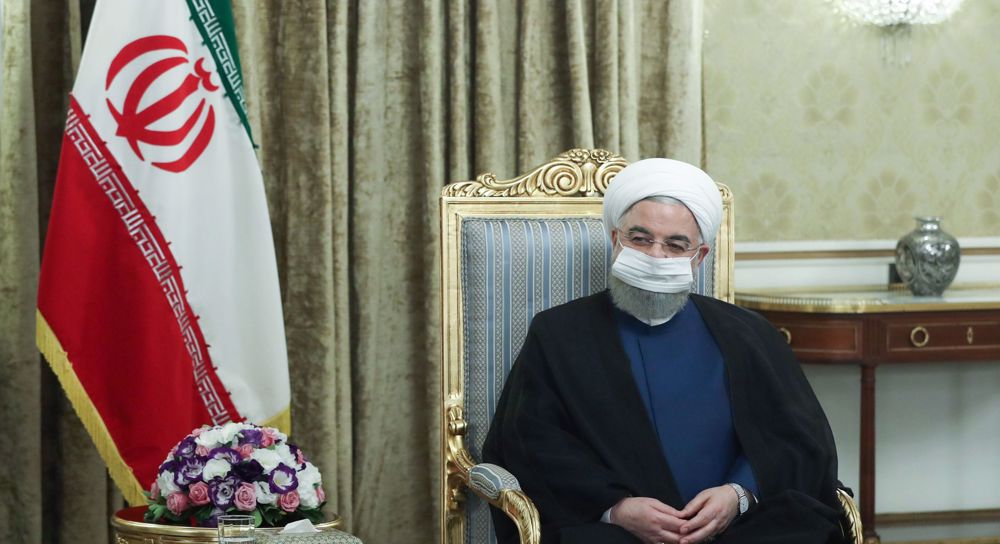










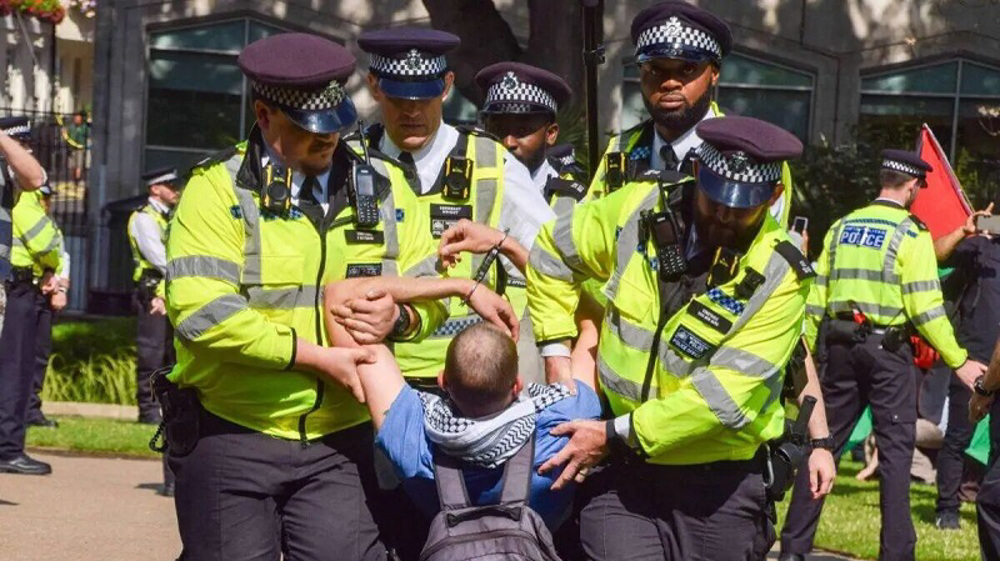
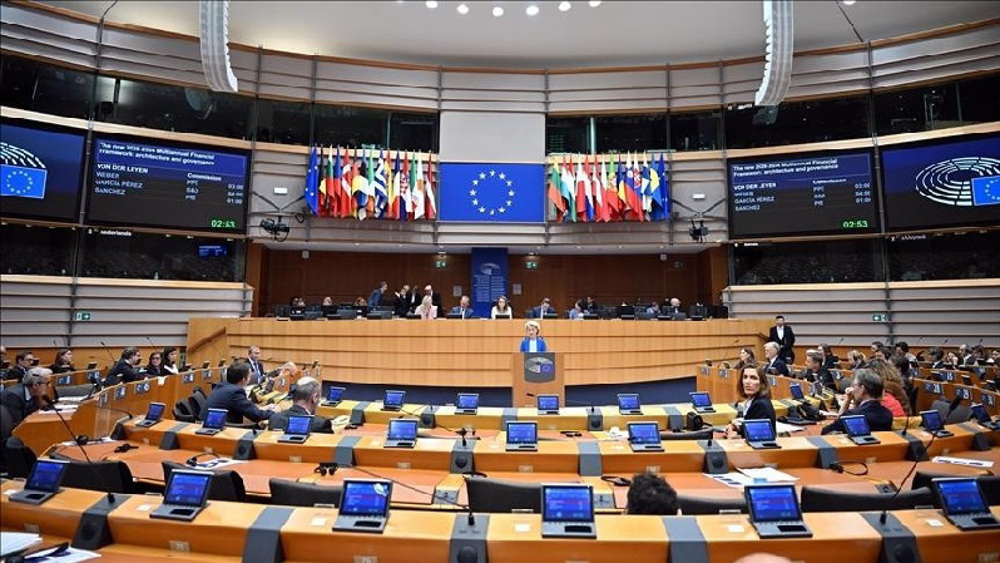




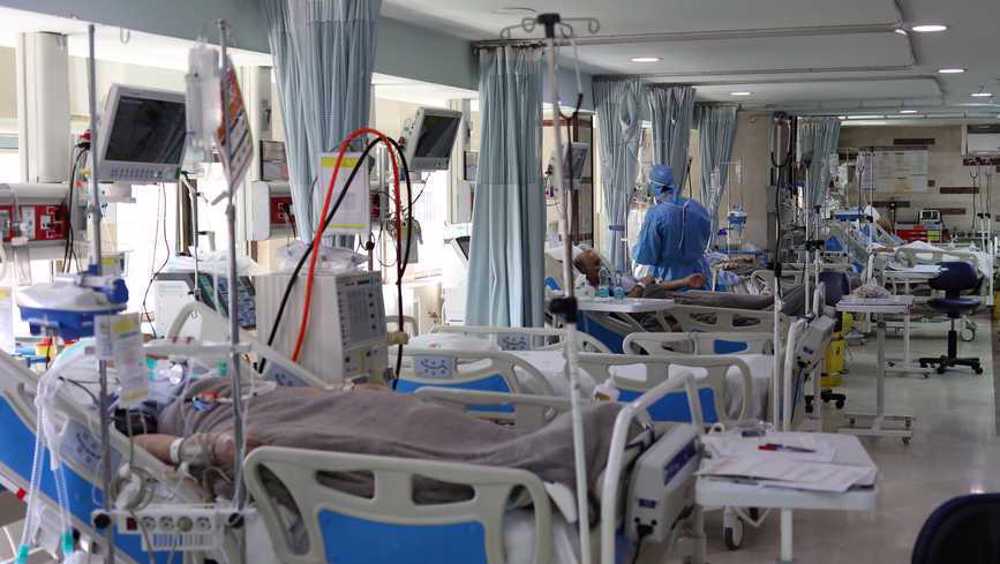



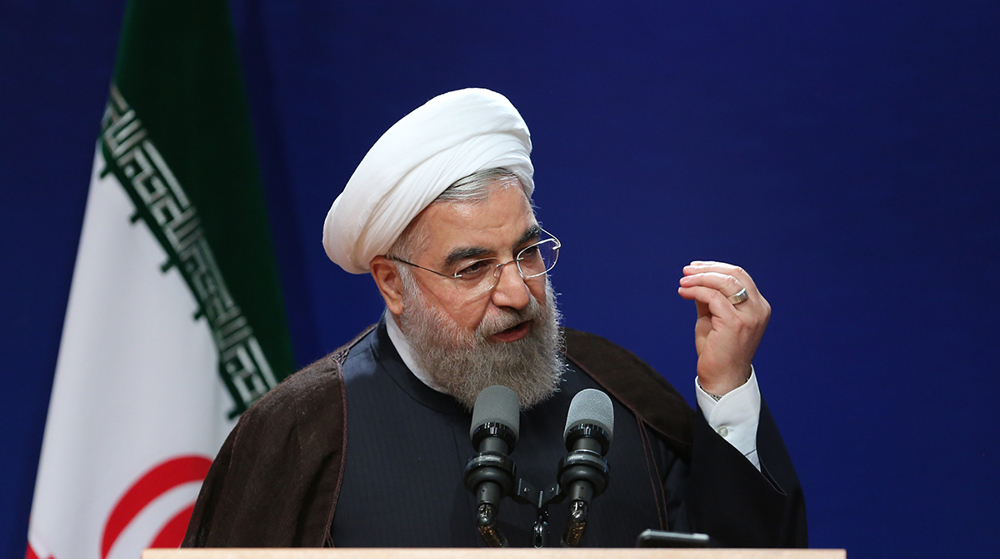




 This makes it easy to access the Press TV website
This makes it easy to access the Press TV website